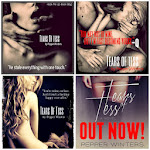So, you’re pretty darn talented at writing, huh? In fact, your English teachers and professors told you about it your whole life. You have a superb vocabulary, a wild imagination, a flair for the dramatic, and lots of terrific story ideas. Now it’s just a matter of bringing it all together and writing the great American novel.
I run across a lot of people who say, “I have a great idea for a book, but just haven’t taken the time to sit down and write it yet.” Some of those people may actually get it done (I know a few who have), but most never will. Or if they start, they’ll eventually give up on the project.
Why is that?
For starters, writing a book isn’t as easy as it may seem, especially if it’s a full-length novel. And I don’t think anyone understands that until they give it a try. It isn’t just a matter of pounding out the story on one’s computer, writing page after page until the book is finished. Oh, it’s far from that.
I’ve written non-fiction, and while it’s not a piece of cake by any stretch, it’s at least a methodical process. The writer starts with a known subject, understands where the presentation needs to go from start to finish, and creates a detailed outline to make sure all the requisite information is included and laid out in a logical and comprehensible fashion. Then it’s a matter of time and discipline to write each section until the first draft is done. Then the editing process starts.
Fiction, on the other hand, is all about creating something that doesn’t exist. And it better be something original that no one else has ever quite created before! Nothing is “known”, and the author has a moving target until he or she is finished. That’s because storylines have a way of taking their own paths, and it seems like the author is always scrambling to keep up until finally putting a kibosh on the whole thing.
If writing a novel were as simple as sitting down at a computer and pounding out a story, lots of people would do it. But it’s really like any other profession in that it involves a unique set of talents, skills, knowledge, and brain functionality.
What do I mean by “brain functionality”? Well, fiction-writing is both a creative and technical process that simultaneously requires both hemispheres of the brain. So a person who isn’t principally dominant on either the left or right side is usually best suited for the task. Or, at the very least, they need the ability to firmly tap into both.
On the knowledge front, one must learn about publishing industry rules and guidelines before starting on a novel, otherwise someone will have a big mess to clean up. These rules and guidelines pertain to things like first or third-person narrative, point of view (POV), dialogue, tense, punctuation, grammatical flexibility (or lack thereof), and active versus passive writing. A competent editor will help with all these things, but the author should at least take a few writing courses and/or read comprehensive books on the subject to prevent handing over a manuscript that is so nonconforming that no one in their right mind would touch it.
The other important requirement for writing any full-length book is self-discipline. It’s one thing to work on projects at the office with a boss or client breathing down your neck. But it’s another to be at home where no one is cracking the whip, and there are millions of other things screaming to be done, making it oh so easy to put one’s book on the back burner and get to it “tomorrow”. But take my word for it when I say “tomorrow” never comes. You simply have to do it, just like going to the gym.
This is also where we see a major difference between fiction and non-fiction. With fiction, one is far more likely to experience “writer’s block” and/or having no sense of where the story is going. That makes it even more attractive to ignore the book. It’s also easy with fiction to lose control over one’s storyline and let it turn into a mind-numbing nightmare, hence why I am a full believer in using an outline and ALWAYS keeping it in sync with the book, even if I have to stay up until 2:00am to ensure everything is lined up before I go to bed. Otherwise, the amount of willpower it may take to deal with such a huge, convoluted mess could be downright prohibitive.
Don’t get me wrong. My objective here is not to discourage people from writing novels. I just think it’s important to know what they’re getting into. If they do, perhaps the task won’t seem so daunting.
You know what they say about happiness, right? It’s all about reality versus expectations.
Well, there you go.
Happy writing!
"James Bond Meets Fifty Shades of Grey"
Immerse yourself in the world class novels that combine action, mystery & suspense with tantalizing and tastefully written erotica. You’ll find all your sensibilities roused at once with Kevin Sterling’s ultra-sexy, action-packed Jack Lazar Series.
In this fourth action-packed thriller, Jack travels to Denmark for a business venture, but what seems to be a textbook transaction turns into a nightmare after he gets involved with Katarina, a vivacious Danish girl who apparently lacks a moral compass, not to mention an off button. After naively believing their liaison was just a random encounter, Jack discovers she’s connected to his business deal, and there’s a dangerous political group with skin in the game, too.
Katarina makes a convincing case of being a victim, not part of the conspiracy, but can Jack really trust her?
The firestorm gets out of control as Jack digs deeper, unearths the convoluted plot behind it all, and discovers that innocent people are being heartlessly killed. He’s not only horrified by the reason why it’s happening, but how it’s being done, and there appears to be no way to stop it from occurring again.
Then the scheme’s real objective emerges, launching Jack into action with intelligence operatives to prevent it. But that’s not so easy with assassins on Jack’s tail, forcing him to struggle for survival while trying to prevent Katarina from getting caught in the crossfire.
Buy Now @ Amazon
Genre – Action, Mystery, Suspense
Rating – R
More details about the author



















